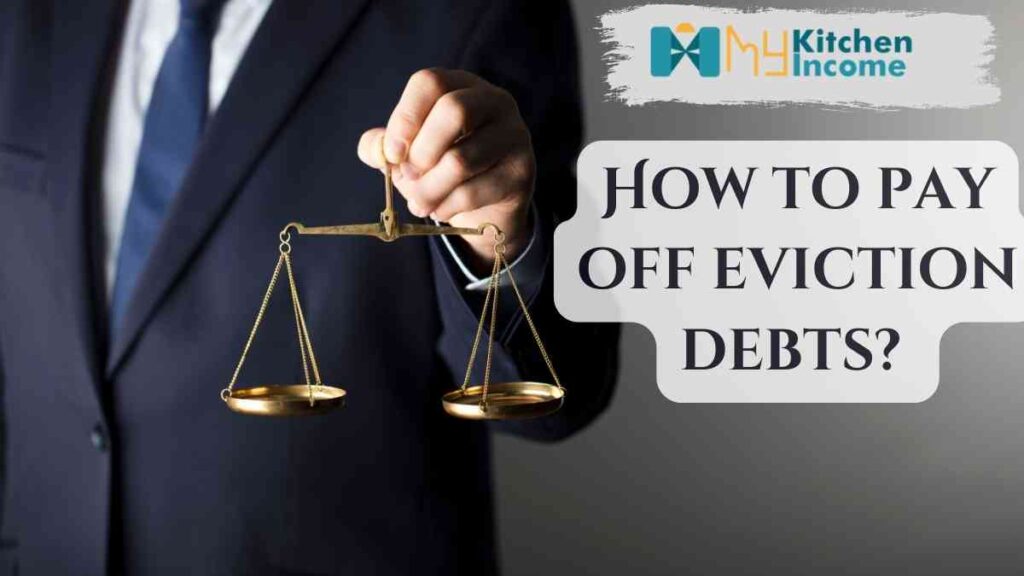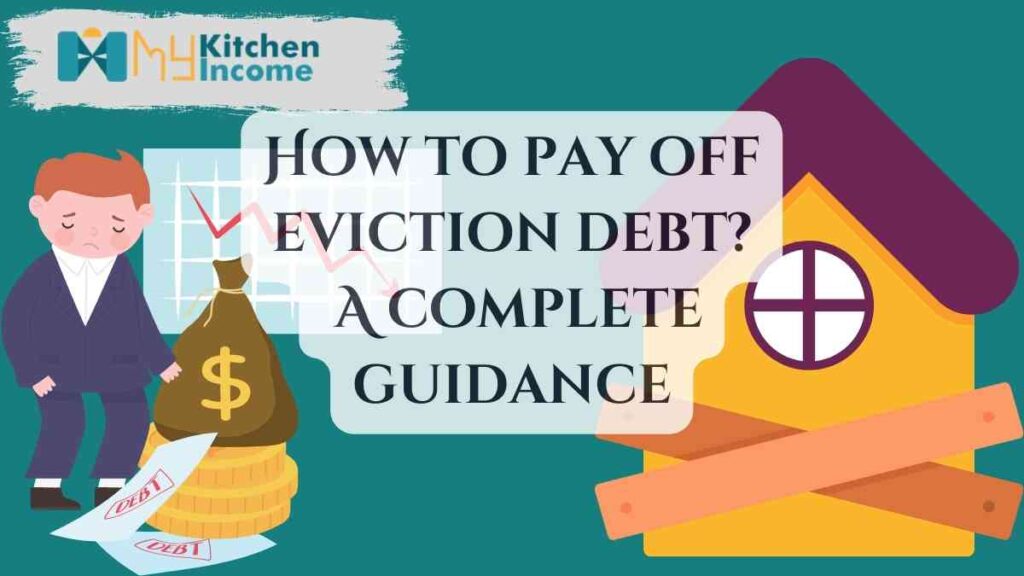Eviction is a very complex and challenging process band is also very upsetting. When you receive the notification of eviction at the last moment, it can be very stressful for you. These eviction issues are not ended you lose your property. Eviction debt and the risks of the other debts are still with you after you lose your property. So, it is necessary for you to avoid it. How to pay off eviction debt? In this article, I tell you what is eviction debt and how to pay off eviction debt.
When the notice has come it might be very stressful, but you can easily understand how to pay off eviction debt and deal with these financial issues. This is difficult but this blog is very beneficial and informative for you.
What is Eviction Debt?
The main purpose of this blog is to provide the right information to people facing eviction issues that how to pay off eviction debt. Eviction is a serious problem that people have to face. Many people cannot pay their property taxes or mortgage and then they are evicted from their properties. This makes a person homeless. He loses his home and his possessions and can even lose everything. This can cause financial problems.
A person has the right to own property, and a person is not allowed to take it away. This means that no one can legally evict you. The government must help you to stay on your property. A person who does not have a place to live should call a lawyer immediately. He needs to get legal help because he will need money to do this. There are many different laws that apply to people who are trying to get out of their homes. It is not a crime to get evicted, but you need to get a lawyer. Your property rights must be protected.

How to pay off eviction debts?
It’s crucial to pay off eviction debts so that you come across to a future landlord as a better renter, but it can be challenging to do so if your financial situation is precarious. Let’s examine some strategies for paying off these loans.
Set out the payment plan:
Many landlords are open to talking about a repayment strategy that will allow you to pay off the loan gradually over a longer period of time. This is due to the possibility that a landlord may decide it is worthwhile to collect the rent even if it takes more than one month to do so. It is crucial to be open and honest with your former landlord about how much you can afford to pay each month without going overboard with your spending. Even with a repayment plan in place, if you don’t pay back the money, it may appear that you don’t want to, and your former landlord may decide to pursue legal action or pursue repayment from you.
Plan a settlement offer:
Similar to payment arrangements, some landlords might agree to a settlement offer. This indicates that they will accept a portion of the debt in exchange for writing off the remaining balance. This is because landlords may prefer even a partial payment to the possibility that they won’t receive any compensation at all. Any settlement offer should, however, be received in writing. This means that even after the settlement payment has been completed, the landlord will not be allowed to alter their mind and seek the remaining owing rent. Once more, you should be conscious of your financial limitations.
Set up your personal finance:
You must assess your personal resources to ensure that you can pay the back rent, regardless of whether you have a payment plan, a partial payback offer, or whether you must pay off the entire total of the debt. Let’s look at how to manage your money so that you have adequate income to pay off your eviction debt.

Increase your monthly income:
The greatest approach to increasing your income is to increase your wage, despite the fact that this may seem easier said than done. This can include switching to a different job function, particularly if you work in a profession that pays little. However, this could be challenging and take a while.
If you work in a profession, you can negotiate a pay raise with your boss, employer, or the human resources division of your business. Even if you have a strong argument for why you should get a raise, it can be unnerving to bring it up in front of your supervisor, especially if you are concerned that he or she might not be amenable to the idea.
You can look for strategies to boost your wages outside of your current employment whether or not you can acquire a greater salary at that position. For instance, you might consider taking on a second job. Being able to work flexible hours is much more commonplace than it formerly was. As a result, you can start working a part-time job in the evenings in addition to your daytime job. As an alternative, you can consider finding employment at a restaurant, bar, or another service-related establishment. While this is difficult labor, it can be fairly lucrative if you select a position where you are likely to receive good tips.
Also, read this on how to stop property tax foreclosure.
Conclusions:
In conclusion, I hope you get enough information about the query of how to pay off eviction debt. Keep at it and concentrate on paying off your obligations; otherwise, you might have trouble finding landlords who will let you rent their properties. Once your debt is settled, you may concentrate on persuading a prospective landlord that you would be a fantastic tenant for their home, allowing you to return to the rental market and have your own home once more.
FAQs:
Q: How to pay off eviction debt?
Ans: The first step is to get your financial house in order. Make sure you have a good job and a good income. This will allow you to make your payments on time. You should also make sure that you have saved because you will need them for other expenses.
Q: How much time does it take to pay off eviction debt?
Ans: It takes a long time to pay off your eviction debt. But it is possible to pay off your eviction debt if you work hard enough.


